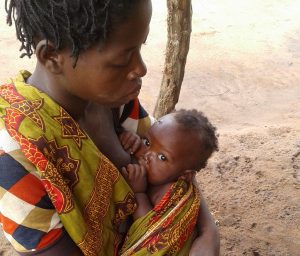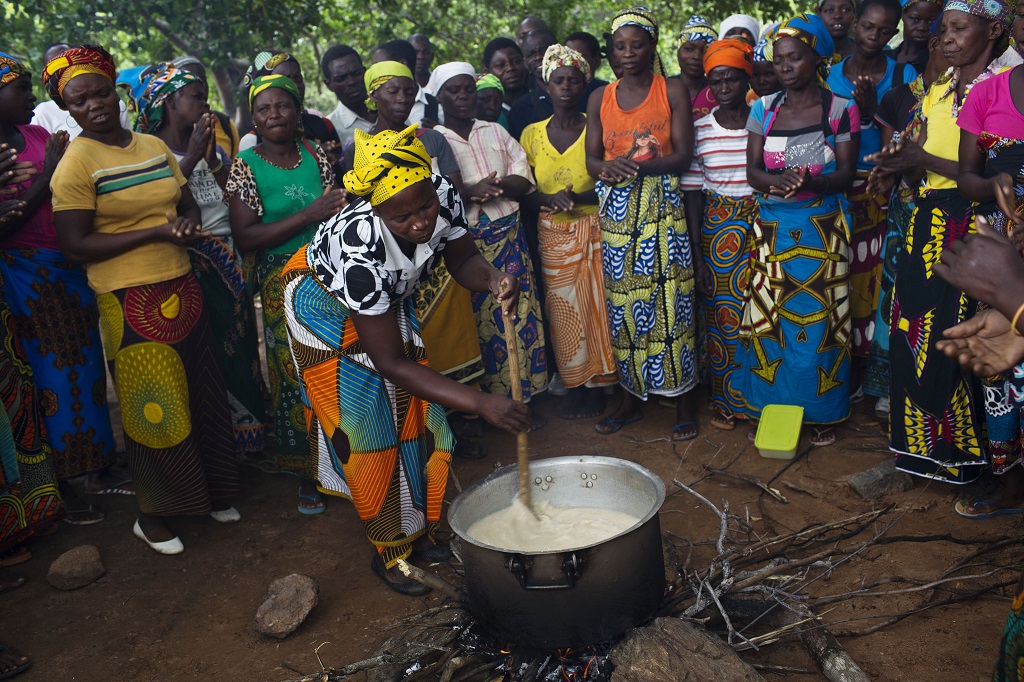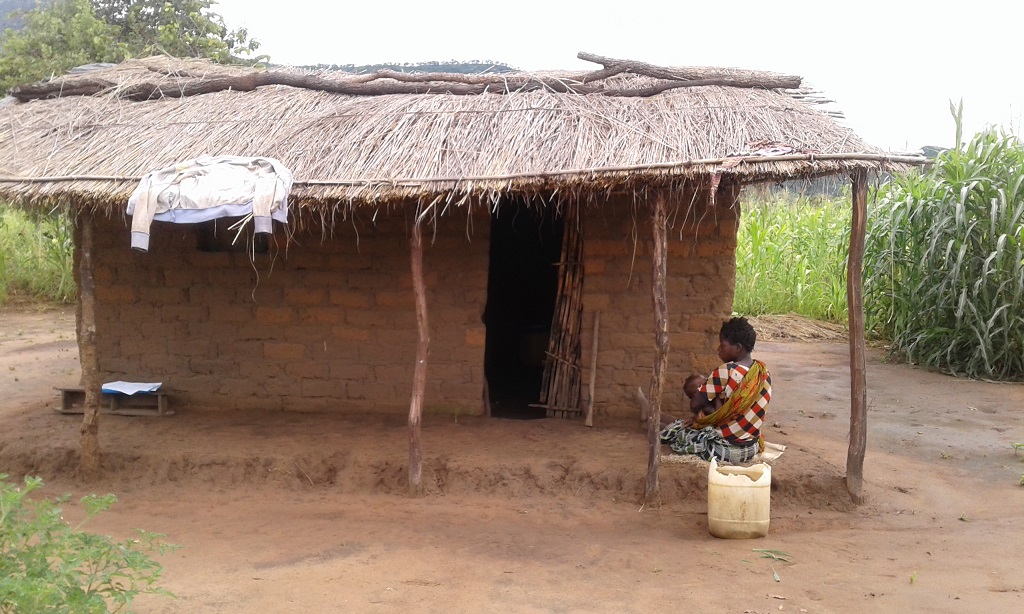This article also appeared on the Crowd360 website.
It took three home visits before Ramalho Nacuali, an MCSP Nutrition Supervisor, could see young Fatima’s energy and health improving. Clearly, the information on better feeding and hygiene practices he had shared with the girl’s family was beginning to bear fruit.
In the small community of Saua-Saua, Mozambique, Ramalho had previously identified Fatima’s adolescent mother during a round of home visits. Just barely 16-years-old when she gave birth at home, Mualeria Alfredo had stopped going to school to care for her daughter. Now, like an estimated 55% of children under five in Nampula province, the 11-month-old girl was at risk of stunting.
Sadly, this doesn’t make Fatima unique in an area where 1 in every 2 children will never reach their maximum physical stature and mental potential. MCSP is training health workers to change these statistics one home visit and one family at a time, refusing to allow a lifetime of health and the productivity of a generation to be compromised.
Ramalho made three visits to Mualeria’s house to provide counseling and encouragement to improve the family’s feeding and hygiene practices. On the third visit, the young mother told him that she was able to make the changes to her daughter’s diet using locally available foods and was seeing the positive effects.
“My daughter is happier and playing more than before,” she said. Mualeria likes the new practices so much, she said, that she has been telling other mothers in her village about the importance of providing varied and nutritious foods.

Fatima’s case, and others like hers, compelled MCSP to undertake a nutrition formative assessment in Nampula to better understand the cultural beliefs, perceptions and challenges related to infant and young child feeding. The results of the formative assessment will inform the development of tailored social and behavior change communication approaches and messages to address the barriers to optimal infant and young child feeding practices facing mothers like Mualeria.
MCSP used the Trials of Improved Practices (TIPs) methodology, which consists of three home visits to mothers of children 6-23 months of age, to do the assessment. Developed by the Manoff Group, TIPs is a formative assessment technique that allows program implementers to try out behaviors with the target audience that the program plans to promote. This enables implementers to assess the audience’s perceptions, skills, barriers and preferences regarding those behaviors, and address them in their communication interventions.
During the first visit to Mualeria’s house, MCSP staff learned that she had misperceptions about correct feeding from her own mother, which included giving Fatima watery, low nutrient density complementary foods. This included porridge made of ground maze or millet flours with a little added sugar, tea, small fried pastries, and little else. The child’s diet did not include any local fruits due to beliefs that the fruits in season (such as banana and papaya) would cause flatulence or diarrhea, and that the child was too small to eat other seasonal fruits with pips. Both mother and daughter also appeared unwashed.
During the second visit, the MCSP team counseled Mualeria on small, feasible changes in feeding to try for a one-week period, such as giving Fatima mashed, soft food twice a day – such as mashed bananas and butternut squash – and increasing the variety in the child’s diet to include peanuts, eggs and green, leafy vegetables, all of which are easily available in Mualeria’s community. They also recommended improved hygiene habits, such as handwashing with soap, to increase the Fatima’s general cleanliness and decrease the chance of infections.
Initially, Mualeria was hesitant to change her habits. However, by explaining the benefits of improved hygiene and a varied diet – while assuring her that Fatima was not too small to effectively swallow semi-solid and solid foods – the MCSP team successfully motivated her to practice the recommended behaviors.
Seven days later, during their final home visit, Mualeria was practicing all recommendations. And the impact on her daughter was clearly visible.
“Once we arrived at Fatima’s home for the third visit, the child started smiling and jumping around,” Ramalho said. “She was clean and she no longer had signs of infection.”
These efforts in Nampula – one of two provinces (along with Sofala) where MCSP is carrying out nutrition work in Mozambique – aim to strengthen nutrition programing along the continuum of care. Developing culturally-appropriate messages that resonate with mothers like Mualeria increases the chance that they will actually practice them, thereby catalyzing behavior change.

Through provincial nutrition supervisors and district nutrition officers at the health facility level, the Program provides supportive supervision and on-the-job training to improve health workers’ capacity to manage, implement, monitor and evaluate Ministry-endorsed nutrition interventions implemented at the health facility level. Trained activists and volunteers are helping to expand coverage of these interventions – such as vitamin A supplementation for children 6-59 months – from the health facility to the community level. They also conduct group education sessions and home visits to support behavior change, giving particular emphasis to improved maternal and infant and young child feeding practices to reduce stunting.
In total, across both Program-supported provinces, MCSP expects to
reach 940,000 children under five with nutrition interventions.
As maternal and infant and young child feeding practices improve, similarly, the tide of malnutrition will be curbed in Mozambique. This, in turn, will help to free a generation from the grips of stunting — a complex process that robs both children and adults of a lifetime of potential.
To learn more about MCSP’s work in Mozambique, click here. And to get the bigger picture of Program efforts globally, read two new briefs on addressing barriers to maternal, infant and young child nutrition.

